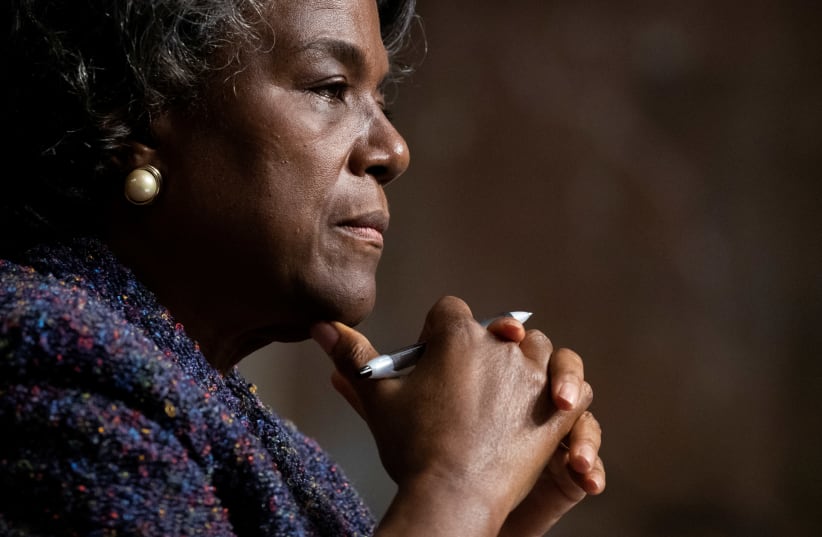WASHINGTON – UN Ambassador-designate Linda Thomas-Greenfield testified at a Senate Foreign Relations Committee confirmation hearing on Wednesday and said that, if confirmed, she will be “standing with Israel, standing against the unfair targeting of Israel, the relentless resolutions that are proposed against Israel unfairly.”
She added that she is looking forward “to work closely with the Israeli Embassy, with the Israeli ambassador, to work to bolster Israel’s security and to expand economic opportunities for Israelis and Americans alike and widen the circle of peace.”
“It goes without saying that Israel has no closer friend than the United States, and I will reflect that in my actions at the United Nations,” the veteran diplomat added.
Thomas-Greenfield noted that the administration of President Joe Biden would seek to rejoin international organizations such as the Human Rights Council in Geneva.
“We know when we’re at the table there are fewer resolutions against Israel,” she argued. “We can push back on human rights violators who want to be legitimized by sitting at the table. We can encourage our allies who are like-minded to join the Human Rights Commission. We can support their elections, and we can work from inside to make the organization better. If we’re on the outside, we have no voice.
“And that goes across the board, whether it’s UNESCO, whether it’s funding to UNRWA, whether it’s how we deal with the WHO. We need to be at the table to ensure that the reforms that are important, that support our values are addressed,” she added.
Addressing the threat of nuclear-armed Iran, the ambassador-designate said: “We will work and make every effort to ensure that the Iranians do not gain access to a nuclear weapon.
“Unfortunately, over the past four years, we’ve seen a tremendous amount of backtracking since we pulled out of the agreement,” she continued. “And we will be working with our allies, our friends, but we also have to work with other members of the security council to ensure that we hold Iran accountable. I will work across all of those areas to ensure that we get the support of our allies, but to see where we can find common ground with the Russians and the Chinese to put more pressure on the Iranians, to push them back into strict compliance.”
She also pushed back against the BDS (Boycott, Divestment and Sanctions) movement. “I find the actions and the approach that BDS has taken toward Israel unacceptable, it verges on antisemitism, and it is important that they not be allowed to have a voice at the United Nations, and I intend to work very strongly against that.”
Speaking about the Abraham Accords, Thomas-Greenfield said that it offers an opportunity “to work in a different way” with the countries who have recognized Israel.
“We need to push those countries to change their approach at the United Nations,” she added. “If they’re going to recognize Israel in the Abraham Accords, they need to recognize Israel’s rights at the United Nations. If I’m confirmed as the UN ambassador [I will] push them on this effort.”
